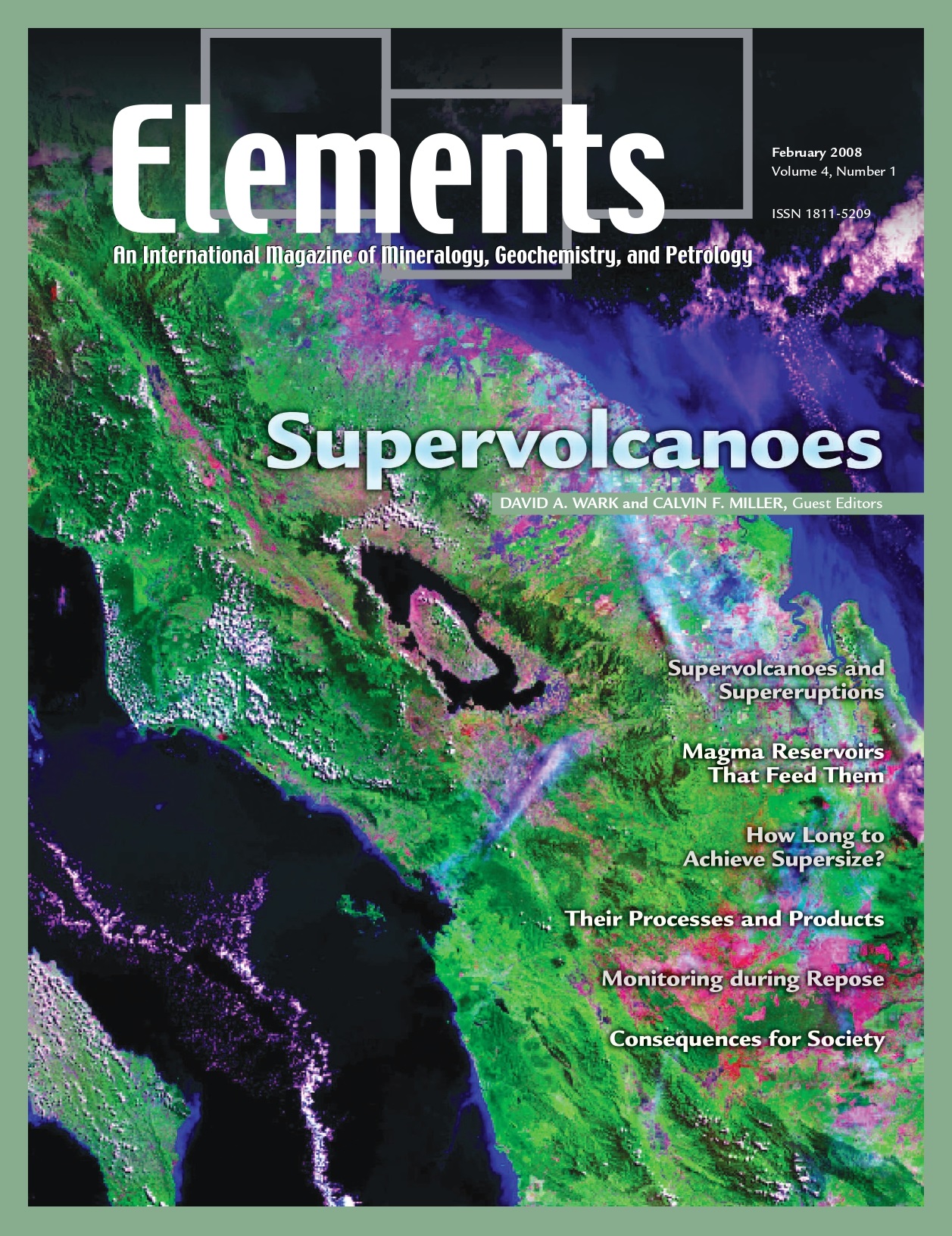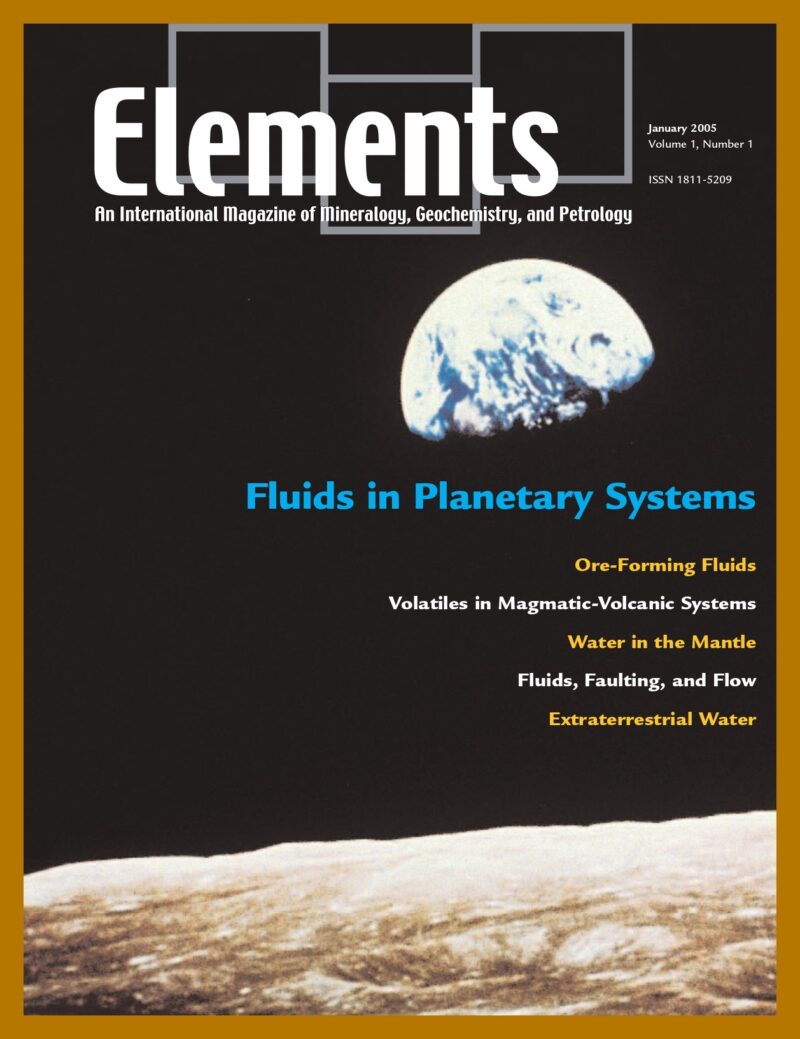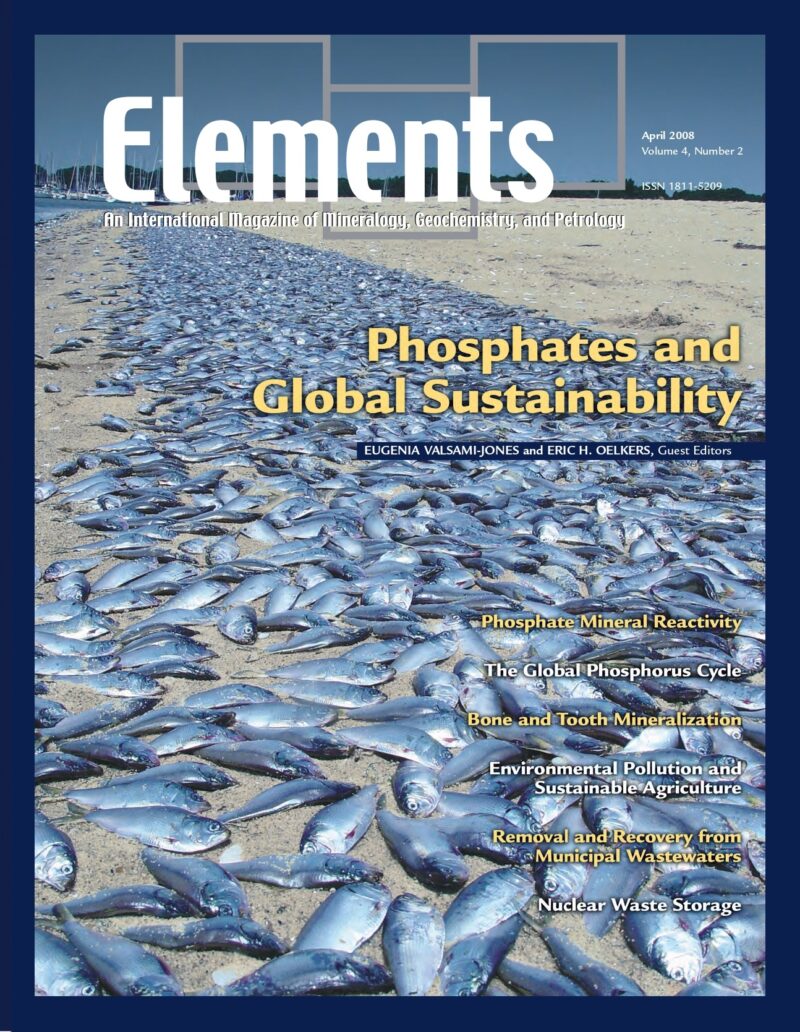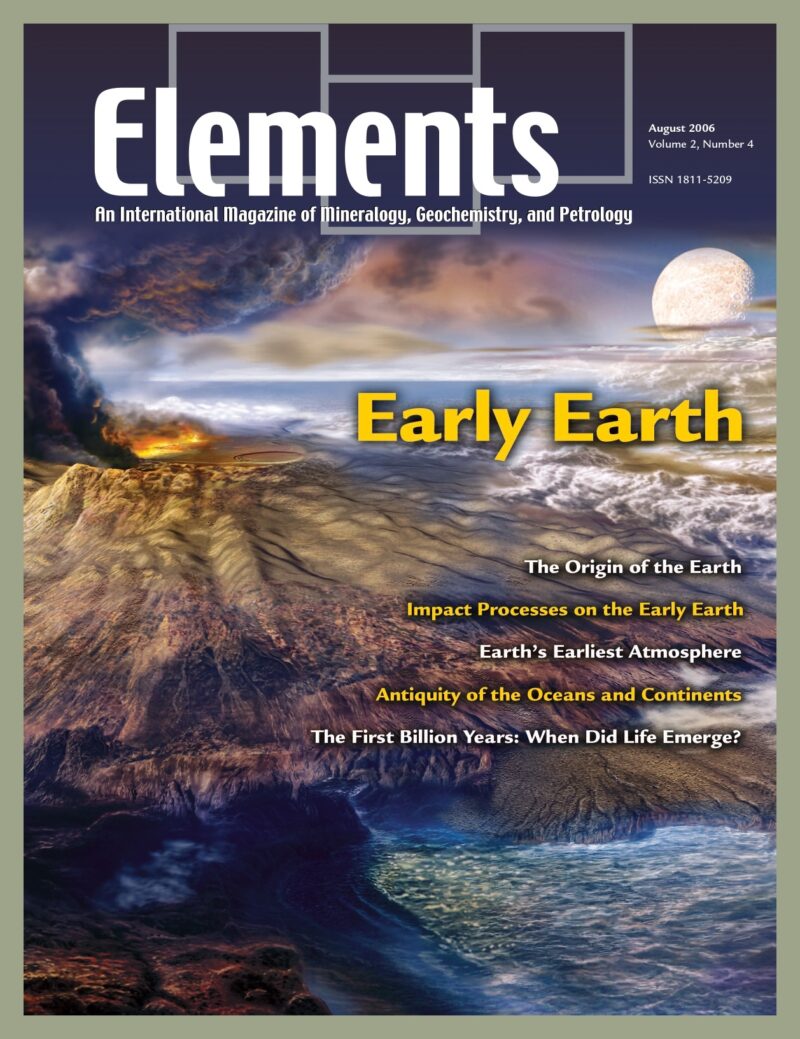
Frontiers In Textural And Microgeochemical Analysis, August 2007, Vol. 3, No. 4
June 28, 2024
Platinum-Group Elements, August 2008, Vol. 4, No. 4
June 28, 2024Supervolcanoes, February 2008, Vol. 4, No. 1
$20.00
Explosive super-eruptions from large volume, shallow magma systems lead to enormous and devastating pyroclastic flows, the formation of gigantic collapse calderas, and deposition of volcanic ash over continent-sized areas. Recognition that future eruptions from these “supervolcanoes” will undoubtedly have severe impacts on society—and perhaps on life itself—has led to recent public and media interest.
Supervolcanoes
February 2008, Vol. 4, No. 1
Explosive super-eruptions from large volume, shallow magma systems lead to enormous and devastating pyroclastic flows, the formation of gigantic collapse calderas, and deposition of volcanic ash over continent-sized areas. Recognition that future eruptions from these “supervolcanoes” will undoubtedly have severe impacts on society—and perhaps on life itself—has led to recent public and media interest. Should we be concerned about an imminent super-eruption? The answer to this question requires an understanding of past eruption events. In this issue, geoscientists investigating ancient supervolcanoes provide insight into the processes and the time required to generate large volumes of eruptible magma, the monitoring of a youthful system, and supereruption processes and consequences.
Why You’ll Love Elements Magazine:
- Expert Contributors: Articles written by renowned researchers in the field of geoscience.
- Engaging Content: Join a community of readers who are passionate about Elements.
- Exceptional Quality: Each issue is printed on high-quality paper with stunning visuals and detailed illustrations that bring complex scientific concepts to life.
Order your copy of the February 2008 issue of Elements magazine today and uncover the science of supervolcanoes.
Related products
-
Fluids in Planetary Systems, January 2005, Vol. 1, No. 1
$20.00Water and other geofluids play an important role in the geochemical and rheological evolution of the Earth and other bodies in the solar system. These fluids are responsible for the formation of hydrothermal mineral deposits, affect eruption behavior in volcanic systems and the geophysical properties of the mantle, and significantly affect the way in which rocks deform and fracture.
-
Phosphates And Global Sustainability, April 2008, Vol. 4, No. 2
$20.00Phosphorus is a unique element: it is essential to the existence of all living forms, and as such controls biological productivity in many terrestrial and marine environments; but when in excess, it leads to uncontrollable biological growth and water-quality problems. This has become a common environmental issue, resulting from our careless use of phosphorus in agriculture, yet phosphate ore deposits, from which fertilizers are produced, are a finite natural resource.
-
Early Earth, August 2006, Vol. 2, No. 4
$20.00The earliest Earth was a strange inhospitable world, yet transitions occurred culminating in the evolution of life within the first billion years. The preservation of a sparse and ambiguous rock record has encouraged debate.




